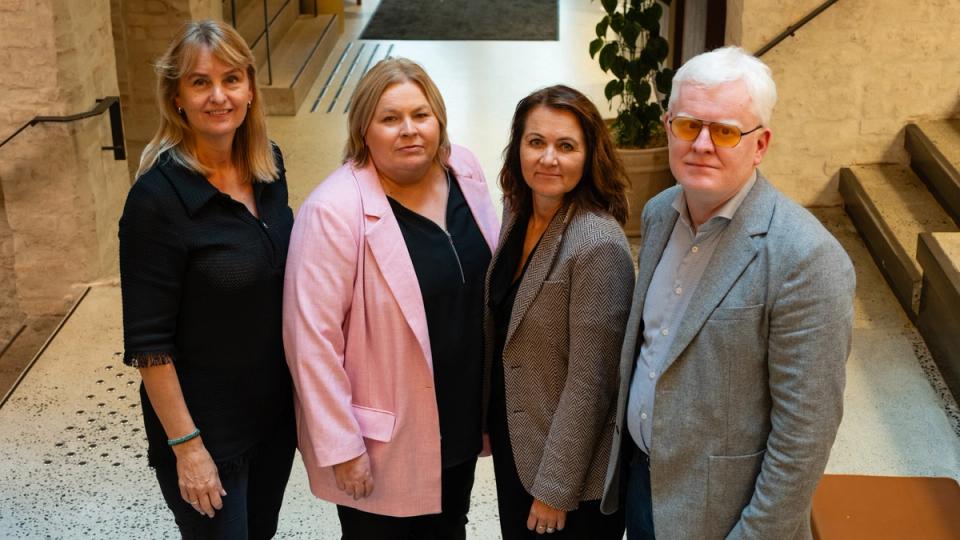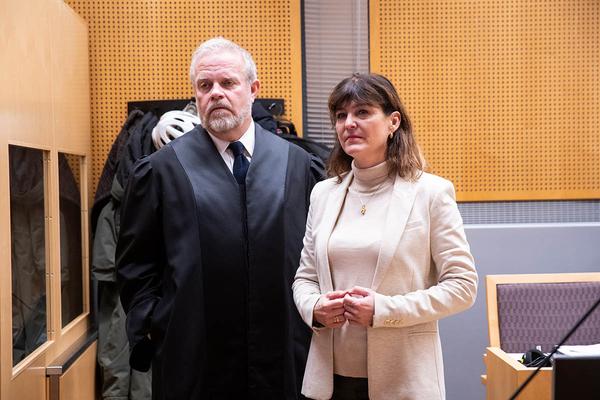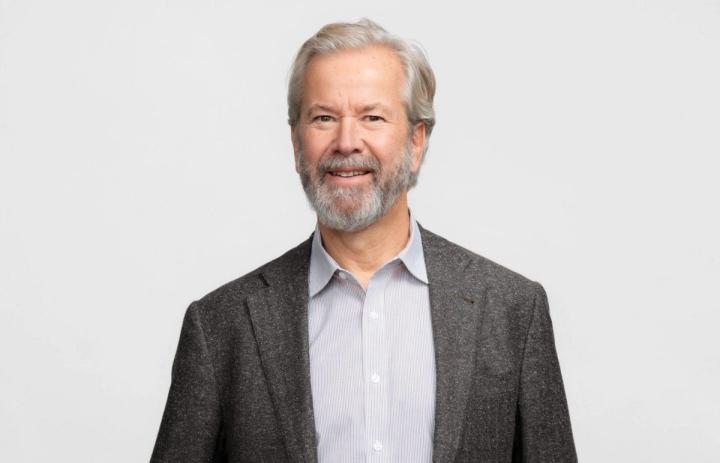29. november 2024
Why We Support the Lawsuit Against the Norwegian State

In the fight to protect society, we are on the verge of relinquishing fundamental democratic values.
Elin Floberghagen, Secretary General, Norwegian Press Association
Dag Idar Tryggestad, Leader, Norwegian Union of Journalists
Randi Øgrey, CEO, Norwegian Media Businesses’ Association
Reidun Kjelling Nybø, Secretary General, Norwegian Editors’ Association
A united Norwegian press supports the lawsuit the Tinius Trust and Varden editor-in-chief Tom Erik Thorsen filed against the Norwegian state. The aim is to have the courts review the Intelligence Service’s new surveillance laws. The case starts in Oslo tingrett (the Oslo District Court) on Monday, 2 December.
The Norwegian Press Association, the Norwegian Editors’ Association, the Norwegian Union of Journalists, and the Norwegian Media Businesses’ Association have joined as intervenors in this lawsuit because we are concerned about how the new legislation affects freedom of expression, journalism, and source protection. We fear that the new legal provisions will have a chilling effect on freedom of expression—that fewer people will dare to speak out or contact journalists.
Consequently, the media lose essential sources of information, and society misses out on important issues and debates.
After the Norwegian Parliament passed the legislative amendments in the summer of 2023, the Intelligence Service can now monitor, store, and search all communication between Norwegian citizens via foreign servers, as long as it is important enough for intelligence purposes.
The conditions under which the Intelligence Service can start collection and searches need to be more specific and precise. This should concern everyone, regardless of position. It directly threatens source protection as a fundamental principle in a free and democratic society. For journalists and editors, source protection is sacred. It ensures that editor-controlled media can fulfil their societal mission, and it ensures that we as a population receive essential information.
The courts must control all handling of data that can affect source protection. This applies because such data can reveal sources, and uncertainty around these issues could affect future sources who do not dare to make contact.
In the 2015 Rolfsen case, which concerned the Police Security Service’s seizure of material from filmmaker Ulrik Rolfsen, the Supreme Court concluded that the seizure was an illegal infringement of source protection. But—as the Supreme Court also points out—the damage had already been done: key sources had withdrawn when the police search and seizure of unpublished recordings became known.
The surveillance distinction between “domestic and foreign communication” has little relevance in the digital world—not regarding source protection.
Increasingly, editor-controlled media collaborate on projects across newsrooms and national borders. The same applies to communication between journalists and their sources.
Our Intelligence Service must, of course, be able to prevent and uncover threats against our national security and democracy. But we must ensure that the means do not go too far. In times of war and conflict, it is tempting to choose solutions that give security authorities even more opportunities to monitor and store information about citizens. Then, we must also remind ourselves what is at stake—that we are harming Norwegian democracy. In a democracy, it is the citizens who should monitor the authorities, not the other way around.
We are privileged in Norway—we have an open society with a high degree of trust. We top democracy indices that measure press and freedom of expression. These are values we must protect together and not take for granted. In the attempt to protect society, we risk paradoxically relinquishing our most important democratic values.
Freedom of expression and strong source protection are the cornerstones of free media. Protecting these values is the most important task for press organisations. When the state enacts laws that threaten these values, it is our duty to speak out.



